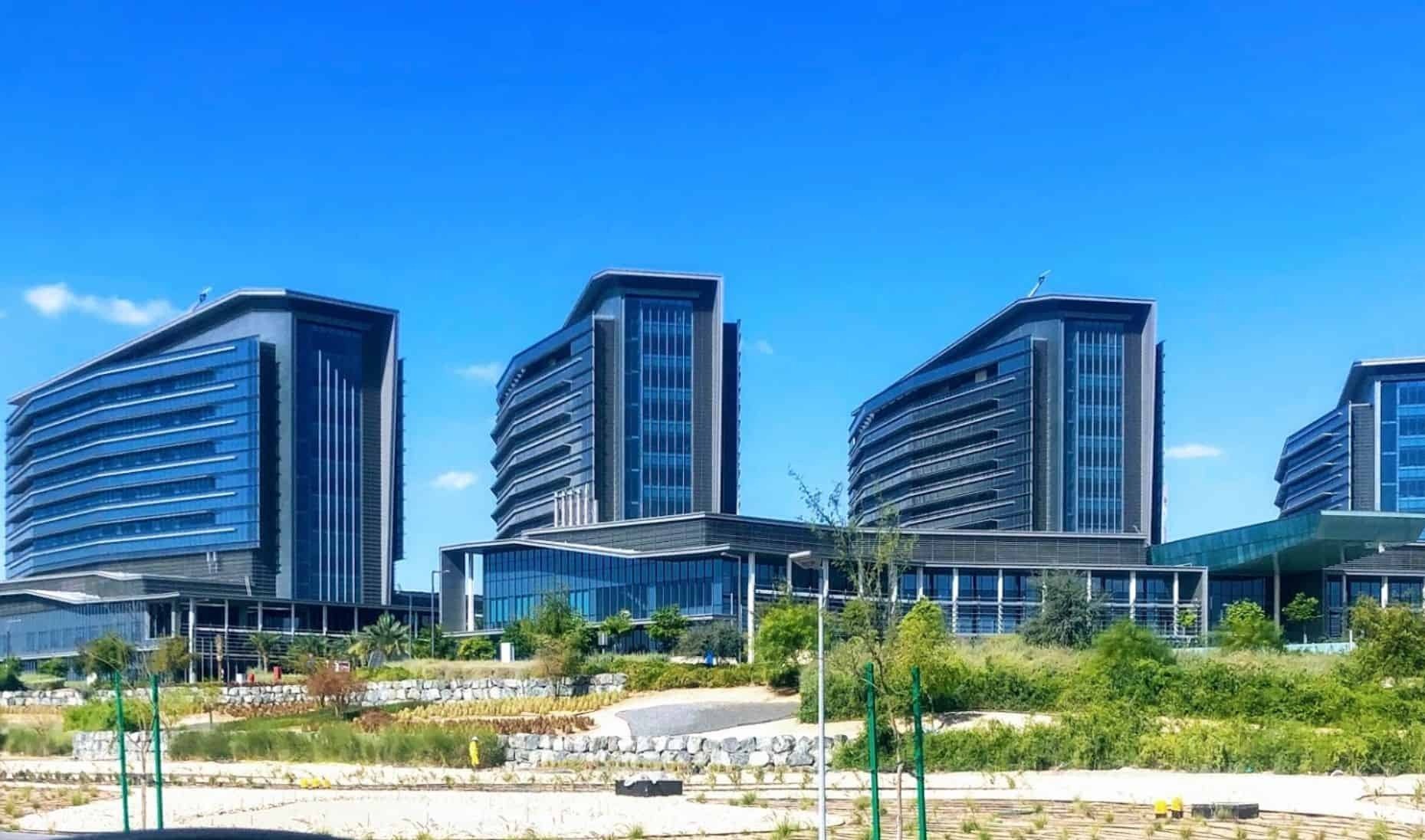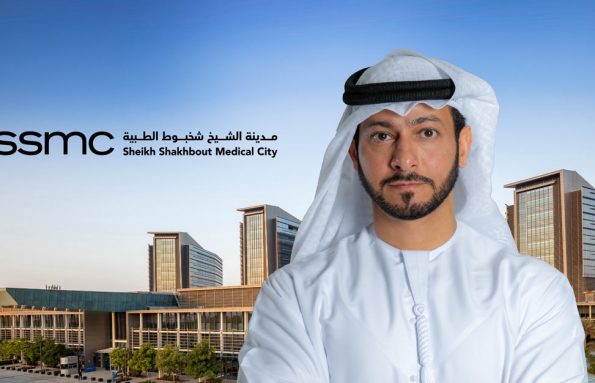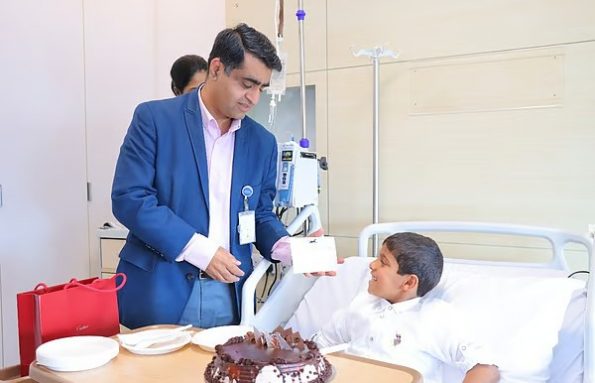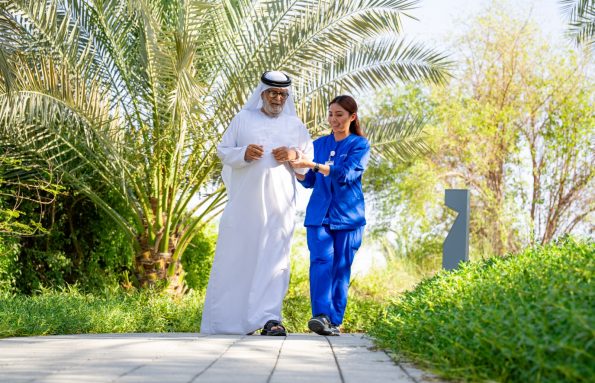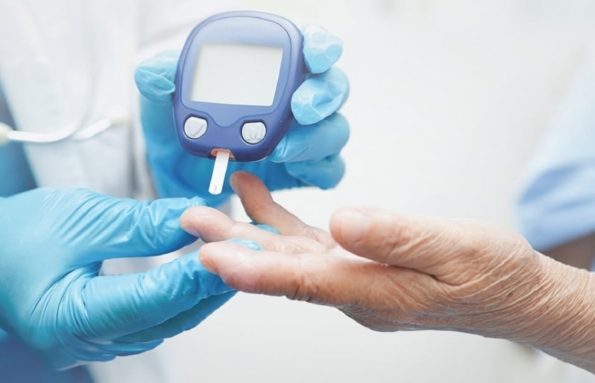- The patient developed “food fear” and started avoiding meals because she anticipated intense pain after eating
- A multidisciplinary team approach to treatment led to quick recovery
Sheikh Shakhbout Medical City (SSMC), one of the UAE’s largest hospitals and a joint-venture partnership between Abu Dhabi Health Services Company (SEHA) and Mayo Clinic, recently performed successful surgery on an Emirati woman, who was suffering from mesenteric angina.
Mesenteric angina occurs when blocked or narrowed arteries restrict blood flow to the small intestines, causing severe abdominal pain, nausea and fever. This condition made the patient suffer from severe pain within a few minutes of eating. Due to the intense pain, she developed something called “food fear”, which occurs when patients want to avoid food because they anticipate pain after eating. As soon as patients smell food, their guts get ready to eat, but because they do not have enough blood supply to the gut, they experience acute pain. The condition usually leads to unintentional weight loss. However, in this patient’s case, the reduction was significant.
Dr. Mohamed Baguneid, consultant and chair of the Vascular Surgery Division at SSMC, conducted the procedure together with his radiology colleagues, Dr. Shahbazali Patil and Dr. Ravi Gadahadh. He said, “Mesenteric angina is like angina but for the gut, and in this patient’s case, it was critical. Within a week, she would have come with a dead gut. Unfortunately, many people suffer from the same condition, but they are diagnosed late, as it can be tricky to identify what is causing the pain at first, and they are, therefore, malnourished. Many people seek treatment at later stages and present with gangrene (death of body tissue due to a lack of blood flow) of the gut because they didn’t get the right treatment earlier. Gangrene of the gut is associated with a high mortality rate of 50 percent.”
A multidisciplinary team consisting of a dietitian, anesthetist, vascular surgeon, and vascular interventional radiologist was brought on board to help with the treatment. Prior to the surgery, specialized scans and ultrasounds were conducted to look at the gut arteries, which is a complex process.
Dr. Baguneid, who is UK Board-certified, along with vascular interventional radiologists, conducted the surgery in SSMC’s advanced hybrid theater suite. The high-risk procedure took around three hours, where they deployed a stent into one of the patient’s bowel arteries through her arm artery.
“The patient probably had one of the most calcified or blocked arteries I have ever seen,” shared Dr. Baguneid. “We performed an open surgery and stenting at the same time, thanks to the sterile environment of our state-of-the-art hybrid theater suite, which not many facilities in the region have. The only cut the patient has from the surgery is on her elbow. Had it not been for the state of-the-art hybrid theater suite we have here at SSMC, we would have had to do the surgery in the radiology suite, which is non-sterile, increasing the risk of infection of the open wound in the arm. The patient is now doing very well and on the road to recovery.”
The patient was discharged around two days post-procedure. The dietitian is now helping her overcome her food fear and assisting in managing her diet after the operation.
Dr. Matthew Gettman, chief medical officer at SSMC, highlighted: “As one of the UAE’s largest hospitals for serious and complex care, SSMC, in partnership with Mayo Clinic, is bringing a more comprehensive form of integrated and holistic patient care to Abu Dhabi. By successfully treating a wide spectrum of complex cases, as in this case, we are setting new benchmarks in the region, thanks to our world-class medical talent that brings extensive and diverse experience, training and education to the table. We are committed to delivering trusted quality and service excellence.
“We will continue to transform the delivery of care in the region, further establishing Sheikh Shakhbout Medical City as a regional destination medical center and upholding Abu Dhabi’s position on the global health care map.”

